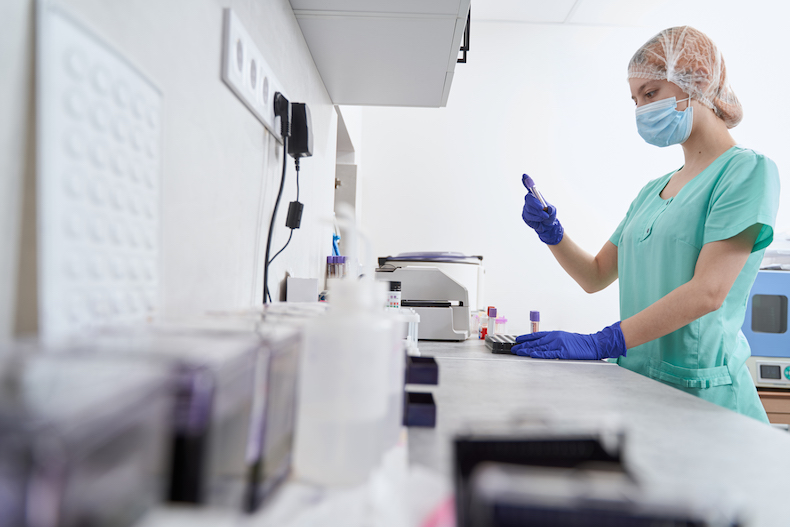Vedanta Biosciences, a clinical-stage company that is developing a potential new category of oral therapies based on defined bacterial consortia, today announced that it has raised $106.5 million to support pivotal-stage development of its lead candidate, VE303, for the prevention of recurrent Clostridioides difficile infection (CDI), and a Phase 2 study of VE202 for ulcerative colitis, among other development activities.
The VE303 study would be the first pivotal Phase 3 study of a therapeutic candidate based on a defined bacterial consortium, which Vedanta is pioneering as a next-generation approach to microbiome therapy. Defined bacterial consortia are products of standardized composition manufactured from cell banks, bypassing the need to rely on donor fecal material of inconsistent composition.

The investor syndicate was co-led by new investors AXA IM Alts and The AMR Action Fund, along with existing investors Bill & Melinda Gates Foundation, Skyviews Life Science, Reimagined Ventures, Fiscus Ventures, PEAK6, and Atlantic Neptune. New investors K2 HealthVentures, Korea Investment Partners, Korea Investment & Securities Asia Ltd. and Korea Investment & Securities US, Inc., and existing investors including co-founder PureTech Health, Revelation Partners, QUAD Investment Management, Seventure Partners, Hambro Perks, and Pfizer Inc. also participated.
“We are grateful to have the support of our new and existing investors, who share our vision of pioneering microbiome therapeutics based on defined bacterial consortia to transform the lives of patients with serious diseases,” said Bernat Olle, Ph.D., Co-founder and Chief Executive Officer of Vedanta Biosciences. “Our Phase 2 clinical data and this new funding enable us to continue advancing the microbiome field beyond products made from fecal donations, and towards pharmaceutical-grade, defined medicines.”
The primary use of proceeds will be to advance a pivotal Phase 3 study of VE303 in recurrent CDI and a proof-of-concept Phase 2 study of VE202 in ulcerative colitis. Vedanta’s positive Phase 2 data for VE303 in recurrent CDI were recently published in the Journal of the American Medical Association (JAMA). C. difficile causes approximately half a million infections each year in the United States, including up to 165,000 recurring infections and has been associated with up to 45,000 deaths annually. The positive results of the Phase 2 study, first reported in October 2021, triggered a $23.8 million contract option from the Biomedical Advanced Research and Development Authority (BARDA) to support a Phase 3 clinical study of VE303. This project has been funded in part with federal funds from the Department of Health and Human Services; Administration for Strategic Preparedness and Response; BARDA, under contract number 75A5012C00177 for a contract value up to $81.9 million.
In conjunction with their investments, Curt LaBelle, M.D., Martin Heidecker, Ph.D., and Neil Tiwari will join Vedanta’s Board of Directors. Dr. LaBelle has been investing in and working with healthcare companies for over twenty years and is Managing Partner of Global Healthcare Strategies at AXA IM Alts. Dr. Heidecker brings over twenty years of extensive international experience in venture capital, drug development, and pharmaceutical marketing, and is the Chief Investment Officer of The AMR Action Fund. Mr. Tiwari brings over fifteen years of healthcare experience in medical devices, pharmaceuticals, biotechnology, and health technology as an operator, investor, and board member, and is a healthcare, life sciences, and technology investor at Magnetar Capital.
In addition, two directors will conclude their tenure on Vedanta’s board, including Christopher Viehbacher, recently appointed Chief Executive Officer of Biogen Inc., and Bharatt Chowrira, Ph.D., J.D., the President, Chief Business, Legal and Operating Officer of PureTech Health. Charles Sherwood III, Associate General Counsel at PureTech, will replace Dr. Chowrira on the Vedanta Board of Directors.
About Vedanta Biosciences
Vedanta Biosciences is leading the development of a potential new category of oral therapies based on defined consortia of bacteria isolated from the human microbiome and grown from pure clonal cell banks. The company’s clinical-stage pipeline includes product candidates being evaluated for the prevention of recurrent C. difficile infection, inflammatory bowel diseases, food allergy, and liver disease. These investigational therapies are grounded in our team’s pioneering research – published in leading journals including Science, Nature, Cell, and JAMA – to identify beneficial bacteria that live symbiotically within the healthy human gut, fight pathogens, and induce a range of potent immune responses. Vedanta Biosciences controls a foundational portfolio of more than 70 patents and has built what it believes is the industry-leading platform for development of defined bacterial consortia drugs. This platform includes one of the largest libraries of bacteria derived from the human microbiome, vast datasets from human interventional studies, proprietary capabilities in consortium design, and end-to-end capabilities for CGMP-compliant manufacturing of oral drug candidates spanning cell banking, fermentation, lyophilization, and fill finish.
About Defined Bacterial Consortia
Defined Bacterial Consortia are assemblies of bacteria of standardized composition that act cooperatively to exert a therapeutic effect. The constituent strains in each consortium are rationally selected from Vedanta’s extensive in-house strain library, and grown from pure, clonal cell banks using scalable fermentation processes. Each capsule contains precisely controlled compositions and doses of the same live bacterial strains and is formulated for stable oral delivery to the lower gastrointestinal tract. We believe that our targeted approach offers consistent composition and quality attributes, may provide more consistent clinical benefit, limits safety risk, and enables greater scalability compared with fecal-derived approaches.









